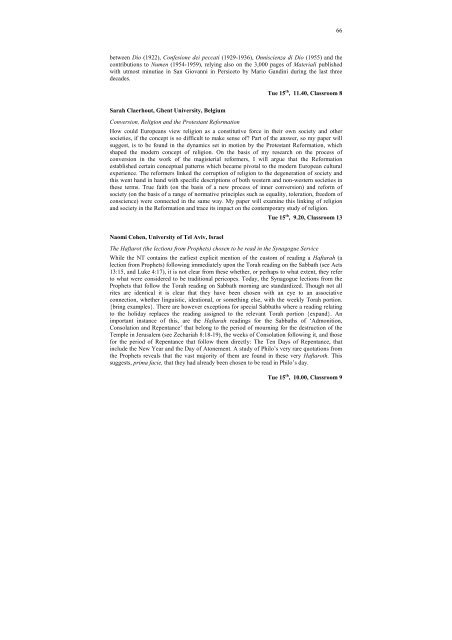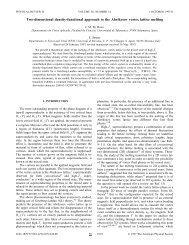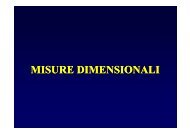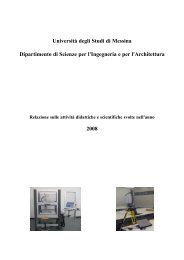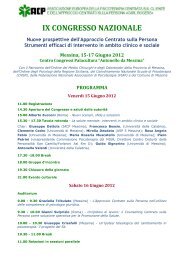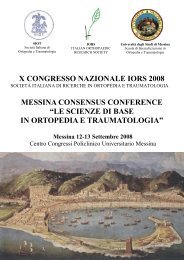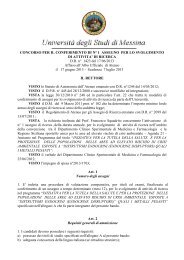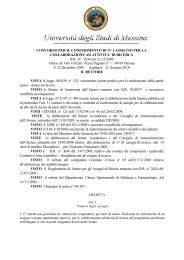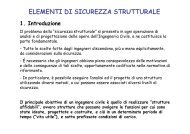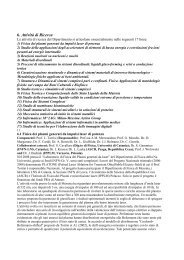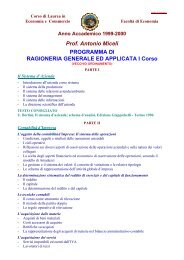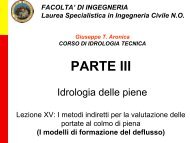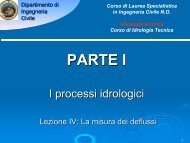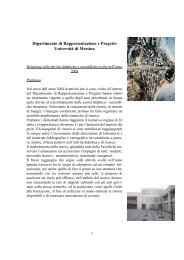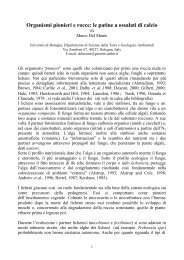PROGRAMME AND ABSTRACTS - Università degli Studi di Messina
PROGRAMME AND ABSTRACTS - Università degli Studi di Messina
PROGRAMME AND ABSTRACTS - Università degli Studi di Messina
Create successful ePaper yourself
Turn your PDF publications into a flip-book with our unique Google optimized e-Paper software.
etween Dio (1922), Confesione dei peccati (1929-1936), Onniscienza <strong>di</strong> Dio (1955) and the<br />
contributions to Numen (1954-1959), relying also on the 3,000 pages of Materiali published<br />
with utmost minutiae in San Giovanni in Persiceto by Mario Gan<strong>di</strong>ni during the last three<br />
decades.<br />
Sarah Claerhout, Ghent University, Belgium<br />
Conversion, Religion and the Protestant Reformation<br />
66<br />
Tue 15 th , 11.40, Classroom 8<br />
How could Europeans view religion as a constitutive force in their own society and other<br />
societies, if the concept is so <strong>di</strong>fficult to make sense of? Part of the answer, so my paper will<br />
suggest, is to be found in the dynamics set in motion by the Protestant Reformation, which<br />
shaped the modern concept of religion. On the basis of my research on the process of<br />
conversion in the work of the magisterial reformers, I will argue that the Reformation<br />
established certain conceptual patterns which became pivotal to the modern European cultural<br />
experience. The reformers linked the corruption of religion to the degeneration of society and<br />
this went hand in hand with specific descriptions of both western and non-western societies in<br />
these terms. True faith (on the basis of a new process of inner conversion) and reform of<br />
society (on the basis of a range of normative principles such as equality, toleration, freedom of<br />
conscience) were connected in the same way. My paper will examine this linking of religion<br />
and society in the Reformation and trace its impact on the contemporary study of religion.<br />
Naomi Cohen, University of Tel Aviv, Israel<br />
Tue 15 th , 9.20, Classroom 13<br />
The Haftarot (the lections from Prophets) chosen to be read in the Synagogue Service<br />
While the NT contains the earliest explicit mention of the custom of rea<strong>di</strong>ng a Haftarah (a<br />
lection from Prophets) following imme<strong>di</strong>ately upon the Torah rea<strong>di</strong>ng on the Sabbath (see Acts<br />
13:15, and Luke 4:17), it is not clear from these whether, or perhaps to what extent, they refer<br />
to what were considered to be tra<strong>di</strong>tional pericopes. Today, the Synagogue lections from the<br />
Prophets that follow the Torah rea<strong>di</strong>ng on Sabbath morning are standar<strong>di</strong>zed. Though not all<br />
rites are identical it is clear that they have been chosen with an eye to an associative<br />
connection, whether linguistic, ideational, or something else, with the weekly Torah portion.<br />
{bring examples}. There are however exceptions for special Sabbaths where a rea<strong>di</strong>ng relating<br />
to the holiday replaces the rea<strong>di</strong>ng assigned to the relevant Torah portion {expand}. An<br />
important instance of this, are the Haftarah rea<strong>di</strong>ngs for the Sabbaths of ‘Admonition,<br />
Consolation and Repentance’ that belong to the period of mourning for the destruction of the<br />
Temple in Jerusalem (see Zechariah 8:18-19), the weeks of Consolation following it, and those<br />
for the period of Repentance that follow them <strong>di</strong>rectly: The Ten Days of Repentance, that<br />
include the New Year and the Day of Atonement. A study of Philo’s very rare quotations from<br />
the Prophets reveals that the vast majority of them are found in these very Haftaroth. This<br />
suggests, prima facie, that they had already been chosen to be read in Philo’s day.<br />
Tue 15 th , 10.00, Classroom 9


